(and thoughts on 11 others)
One of the things I sorely miss about SF (the city, San Francisco) is my SF (the genre, Sci-fi) Book Club. We started in March 2008, taking turns each picking a book. Our membership waxed and waned from nearly 10 to barely 2 or 3 at times. We had periods where we met every 6 weeks like clockwork, then some others where we couldn't get together a next meeting for months. Even in the face of all these starts and stops, we got through 21 books by the time I moved to the Boston Area in July 2011.
Despite being a very book kind of guy and card-carrying geek of multiple lineages (Star Trek, Star Wars, comics collector, D&D player, I could go on), I had actually never read much Sci-fi, so I was interested to see what was out there, and what I would think of it. From the admittedly not completely scientifc selection of the books picked by the guys and surprisingly large number of gals in our group, here's my vote on a top 10, in alphabetical order (spoiler light beyond the basic premises, since I hate spoilers):
1. A Fire Upon the Deep
(Vernor Vinge, 1993) In full disclosure mode, I must note that this is one of the ones I picked. That being said, I really didn't know a lot about it beyond being familiar with Vernor Vinge from his relationship to thought about the Singularity. It turned out to be a delight for the way it combined genres- at heart it's a kind of horror story, with a really scary ultra-intelligence monster. But the story gets told in a unique Sci-fi setting (a race across across the galaxy, which turns out to be segregated by zones where intelligence, and even the laws of physics, are more advanced on the edge, and get duller toward the center). And a great deal of the action happens in what is basically a fantasy setting, full of castles and palace intrigue. Really well written, delightful all the way through, and provocative.
2. Childhood’s End (Arthur C. Clarke, 1953) This was the third book we read, deservedly a classic. Clarke is a master of clear, simple prose. The book itself is the prototypical "saucers appear over every capital on Earth" story, and once you read it, you'll see its influence everywhere. As far as what those saucers are doing there, who's in them, and what they want with us, though, the thing I found most striking about the book was its originality, both at the time of publication, and still today almost 60 years later.
3. I, Robot (Isaac
Asimov, 1950) Again, a classic, and one whose influence you'll find everywhere you look. The thing that most impresses me about Asimov, though, is the warm humanity of the writing. The stories ring true not so much based on whether predictions about technology and future society are on target (though some of them are), but mostly because they are full of the author's shrewd understanding of what people are like and why they do what they do. In the hands of someone else this could come off very cynical, but with Asimov it's more of a wise, knowing, "Ah, yes, that's who we are."
4. Neuromancer (William
Gibson, 1984) Here is born cyberpunk. And happy birthday to it! In many ways, a chillingly plausible look at a world more technologically advanced, but more socially decayed. Did this foresee many aspects of the Internet, or actually influence its development? And seriously, could The Matrix pay some copyright for ripping off every element of character and visual design it had from this book (albeit with a very different storyline)? But beyond all the further thoughts I could unload about it, at heart it's a damn well done film noir story thrust into the realm of cyberspace (a term it invented!).
5. Revelation Space (Alastair Reynolds, 2000) All the books I've described so far do an excellent job with character, but I don't think any of them get as deep into the psychology of their (often deeply flawed) main characters as this book does. Along the way, there's horror, intrigue, skillful plotting as three widely divergent storylines converge, and high concept cosmic evolution. Given that so many of the works we read came from a Sci-fi heyday of the 50s to the 70s, this makes me glad to say: Well done, 2000s!
6. The Forever War (Joe Haldeman, 1974) When it first came out, this was a kind of parable about the Vietnam War told through the main character's experience of a war lasting generations due to the time dilation between it's far-flung battlefields. Nobody quite knows how the war is going, why we're fighting, or even exactly who the enemy is. Sad to say, it has a whole new resonance thirty-five year later after our own decade-long Forever War Against Terror.
7. The Martian Chronicles (Ray Bradbury, 1950) This was the book we kicked off with. As we should have, since it gave us the vital middle of the ABC "big three" of classic sci-fi (Asimov, Bradbury, Clarke). In terms of science, the Mars it portrays was already badly outdated by the mid 60s, and throughout, the technology of how we get there and stay there is treated as an afterthhought. And that really doesn't matter, because it functions on the level of fable- the things in it are true, because they've always been true. And that truth is suffused with some of the most heartbreakingly beautiful prose you will ever read.
8. The Mote In God’s Eye (Larry Niven and Jerry
Pournelle, 1974) There's also some feudality here, in that there are
lords and ladies in an interstellar monarchy. This turns out to be a
feature of several of the books we read, a portrayal of human
civilization becoming more feudal as it spreads out across multiple star
systems. The focus of the action, though, is first contact with the
Moties. I'll leave it to you to find out all about them, but suffice it
to say it is a superb portrayal of just how physically and culturally
alien an alien race might turn out to be. Plus it's just good,
character-rich, well-plotted, fast-paced fun to read.
9. The Ophiuchi Hotline (John Varley, 1977) Set in a solar system that is now thoroughly inhabited (except for, curiously, but for good reasons, Earth) this book is rollicking good fun. It has everything you'd need for a good time- clones, aliens, spaceships, genetic engineering. It also delivers a future that seems quite plausible to me (especially the banana meat trees) despite how exotic it is. And it makes you think about just how little say we might have in the shape of our own future if there really are other intelligences and a higher cosmic order.
10. The Sparrow (Mary Doria Russell, 1996) This could be exhibit A in the "Is literary fiction that happens to use Sci-fi themes or settings still Sci-fi?" argument. Or, conversely, "Can Sci-fi be 'serious' literature?" I've always thought it's a bit of a silly distinction. Dickens and Shakespeare were, in their time, writing that day's equivalents of potboilers. Meanwhile, many things that are supposed to be "important books" today will vanish in the mists of time, and thus prove to be quite as disposable as anything Danielle Steele ever wrote. Good writing is good writing, and time will tell what the enduring literature is. But this massively sidetracks us. A great book, literarily. And great sci-fi. Also one of my favorite kinds of sci-fi, near future, and involving first contact. Which turns out to be far less about the aliens, and far more about who we are and how we make meaning in life.
Honorable Mention (9 other good reads):
Berserker (Fred
Saberhagen, 1967)- May man versus killer robot spaceships always be so fun.
Eon (Greg Bear, 1987)- I think about this one a lot, almost a top 10. Stunning ideas about future human evolution, with a time travel twist. Plus great use of Ralph Nader. Really.
Flashforward (Robert
J. Sawyer, 1999)- I told you that CERN supercollider would be trouble...
IQ83 (Arthur Herzog, 1978)- A potboiler? Yes. But damn would it be fucked up if this happened.
Quarantine (Greg
Egan, 1992)- While this didn't make my top 10, I do think Egan is one of the finest, and most philosophically challenging, sci-fi writers out there. Check out Distress and Permutation City for further mind-bending.
Starship Troopers (Robert
Heinlein, 1959)- Right wing? Left wing? Somehow to blame for the movie made from it? And Showgirls as well, through mere association? Or just damn fun reading?
The Divine Invasion (Philip
K. Dick, 1981)- One of my favorite authors. If I hadn't already read his book VALIS before I got to the group, it would have been in the top ten above, and this is more from that same, very good, vein.
The Gods Themselves (Isaac
Asimov, 1972)- I don't believe Asimov wrote a bad book. Besides which, anything featuring trisexual energy beings is an automatic yes.
The Road (Cormac
McCarthy, 2006)- See The Sparrow above vis-a-vis Sci-fi and literary fiction. Either way, a great book that somehow manages to be heartwarming and unrelentingly grim at the same time.
Dishonorable Mention (2 cautionary tales)
Last and First Men (Olaf
Stapledon, 1930)- It deserves props for ambitious future history, and recognition as one of the earliest sci-fi novels. It was also very dry and slow. The only one I never finished from the group, sad to say.
The Blind Assassin (Margaret
Atwood, 2000)- Great book, albeit very slow to start and frequently quite bleak. Not Sci-fi, though it does contain a sci-fi tale within the tale. Discussions on group policy were had afterward.

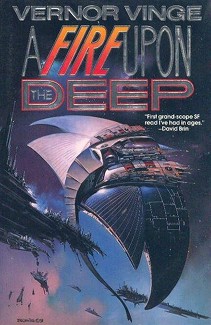
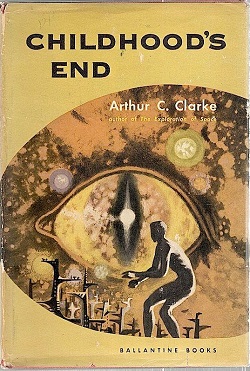
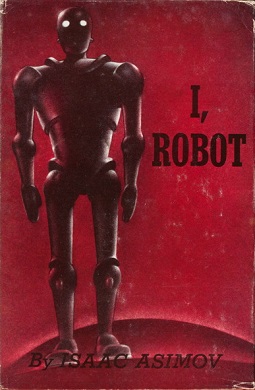
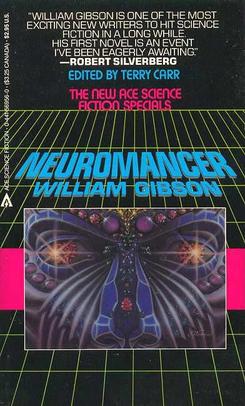
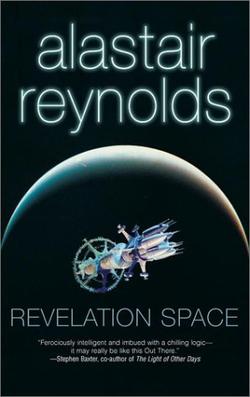


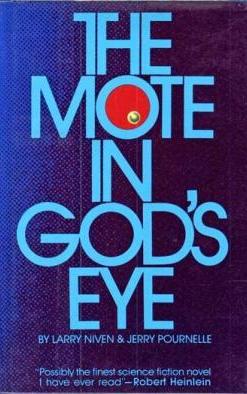

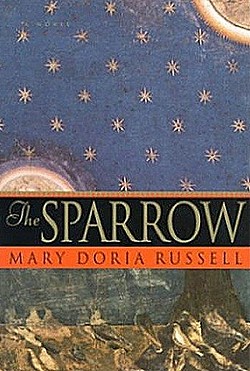
No comments:
Post a Comment